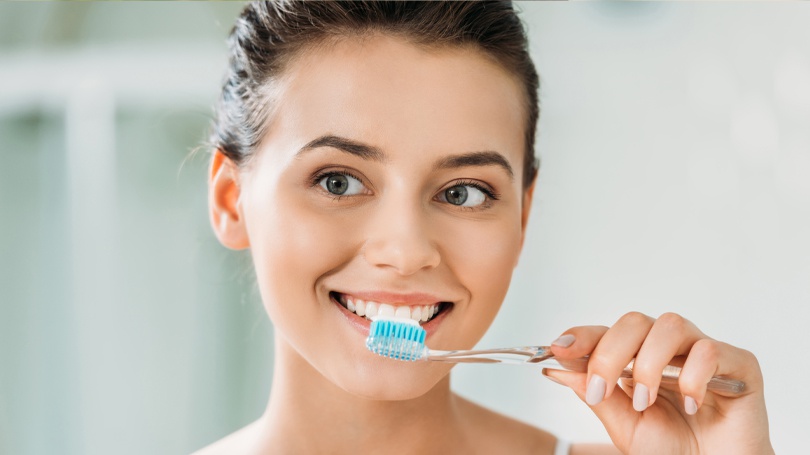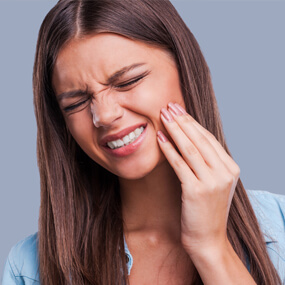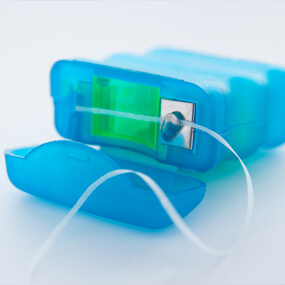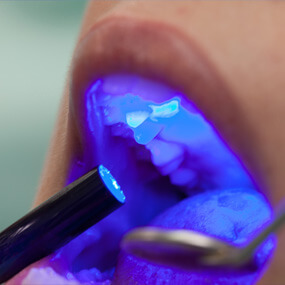Prevent Cavities With These 10 Tips

Cavities are a nuisance. Not only is tooth decay painful, but dealing with it can be expensive, and it is an indication that your oral health has already declined to a concerning point. Left untreated, you will end up dealing with infections, abscesses, gum disease, tooth loss, and other health complications.
The good news is that preventing cavities is not difficult. In fact, we have assembled 10 tips you can employ on a daily basis to keep your mouth healthy, beautiful, and cavity-free:
- Brush Twice a Day – The American Dental Association advises brushing your teeth in the morning after breakfast and again before you go to bed. Toothbrush choice and condition is important as well. Choose a toothbrush with soft bristles and a small, round head that makes it easier to reach those teeth in the back. Brush all sides of every tooth, and an electric toothbrush can make that task easier. Brushes and brush heads should be replaced about every three months or so or whenever there are visible signs of wear, such as fraying.
- Use a Fluoride Toothpaste – Toothpaste choice is crucial as well. There are many products available, and what you want to look for is a product that contains fluoride and has received the ADA Seal of Acceptance. Fluoride is a mineral that bolsters your teeth and helps to avoid tooth decay. You should target a fluoride concentration of at least 1,000 parts per million. That information is printed on the product carton. Depending on the condition of your teeth, your dentist may recommend a stronger fluoride concentration in order to strengthen the teeth. Children should begin using this same toothpaste as soon as they are old enough to spit it out.
- Floss Daily and Rinse Regularly – Flossing removes food particles and plaque between teeth that are difficult to reach with a toothbrush. The ADA recommends flossing once or twice a day. It is possible to floss too much, and plaque formation takes about 24 hours, so once a day is enough for most people. You should rinse at least once a day with a therapeutic mouthwash and can also rinse throughout the day using water. Rinsing vigorously with water is a good idea after lunch and dinner, and if you want to freshen your breath, add a drop of lemongrass oil or another non-acidic natural oil.
- Schedule Regular Dental Visits – The ADA recommends an annual dental visit at the bare minimum. Most dental professionals recommend a checkup every six months, and if you have gum disease or some other oral health issue, your dentist may recommend a more frequent schedule. Never assume that because your teeth and gums look good and feel fine that they are actually healthy. It can take a while for gum disease and tooth decay symptoms to manifest, and your dentist or dental hygienist can clean any plaque you may have missed. It is important to get rid of that plaque before it becomes the more serious tartar.
- Discuss Dental Sealants With Your Dentist – A dental sealant is a coating that your dentist can install onto the backside of your teeth. These tooth-colored composites cover the areas that are difficult to brush and are susceptible to bacteria. These smooth surfaces are much easier to clean and can easily last for a decade or longer with proper care.
- Stay Hydrated – Proper hydration is essential for a healthy body, and that extends to your teeth and gums and all the other aspects of your mouth. Drinking water does quite a bit in your mouth. It washes away acids, food particles, and the bacteria that would have eventually become plaque. Water also provides many minerals your mouth needs, including minerals that help your tooth enamel repair itself. Water is sugar- and acid-free, and it helps to keep your mouth well-salivated, which is essential to good enamel health. Despite its prevalence in the U.S., drinking fluoridated water is not recommended. You can invest in a reverse osmosis water purification system in order to rid your tap water of fluoride and other unwanted substances.
- Chew Sugar-Free Gum – Did you know that chewing gum stimulates saliva production? Saliva is an important defense against tooth decay. Gum can freshen your breath too. Just make sure it is sugar-free! Xylitol gum is an excellent choice.
- Be Selective About Your Diet – The foods we eat and beverages we drink can damage our teeth if they are acidic. Even healthy foods like oranges and other citrus fruits can be really bad in terms of oral health. Crunchy vegetables, on the other hand, are a great way to clean and strengthen your teeth, and cheese and milk can neutralize acids in your mouth.
- Avoid Sugars and Acids – Sugar is bad for your teeth, and that includes starches that will break down into sugar in your mouth. Sugars react with the bad bacteria in your mouth to become plaque and eventually tartar. But acid is equally bad, which is why diet soda is no better for your teeth than soda with sugar.
- Avoid Tobacco – Smoking is bad for you. It negatively affects your health in multiple ways, and that includes your teeth and gums. Even the occasional cigarette can stain your teeth, cause bad breath, and contribute to gum disease, tooth decay, infections, tooth loss, and even oral cancers. Since smoking lowers oxygen levels in the bloodstream, it even makes it much more difficult for your gums to heal on their own.
Be Proactive About Cavity Prevention
Cavities are not only painful but set the stage for serious dental issues and expensive treatments. Be proactive about avoiding them with regular dental care at home but also regular visits to your dentist for checkups and cleanings to keep your teeth beautiful, attractive, and fresh. Jeffrey D. Clark, DDS, and his dental hygienists at Scottsdale Cosmetic Dentistry Excellence can help you stay cavity-free. Call us at 480 585 1853 to schedule your checkup with Dr. Jeff.




